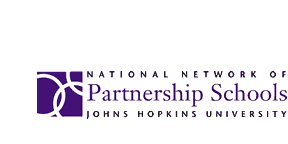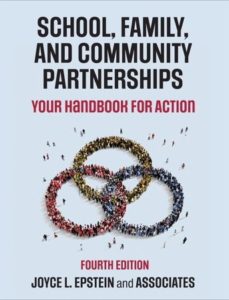May 12, 2017
Help Students Prepare for College and Career:
Schools’ Family Engagement Practices
Steven B. Sheldon, Associate Director, NNPS
Ensuring students are prepared for life after high school is one of the core purposes of our education system. A key milestone to meeting this goal is getting students to graduate on-time from high school. The high school graduation rate is improving, according to the most recent Building a Grad Nation report (Everyone Graduates Center, 2017). The analyses found that, nationally, about 82% of high school students graduate in four years, but the numbers differ by student background. The same report found that about one-in-four students from families with low-income did not graduate from high school in four years.
Last month, at the annual conference of the American Educational Researchers Association (AERA), in San Antonio, TX, Dr. Steven Sheldon (NNPS Director of Research) and R. Tyler Ames (JHU Doctoral Student) presented findings from their paper about the extent to which schools are working with families to help students transition to college or to a career after high school and the perceived effectiveness of these engagement activities. The analyses extended those presented in the NNPS Annual Report: 2016 School Data
Decades of research confirm the important impact of families on student outcomes, from preschool through high school. Family engagement at home has been shown to predict children’s reading levels and kindergarten readiness (Hill, 2001; Rimm-Kaufman & Pianta, 2000); growth in elementary student achievement and attendance (Galindo & Sheldon, 2012; Sheldon, 2007); students’ ability to successfully navigate the transition to middle school (Falbo, Lein, & Amador, 2001), and the likelihood of students’ success in and graduation from high school (Hill & Dyson, 2005; Simon, 2004; Sui-Chu, & Willms, 1996). This confluence of evidence has led to calls for school systems to integrate family engagement practices into their approaches to schooling, from cradle to career (Epstein, et al., 2009; Weiss, Lopez, & Rosenberg, 2010).
Current attention to getting students ready for college and/or a career after high school often ignores the roles that families play in this process. Tierney & Auerbach (2005) argued that academic outreach to families is essential, especially for low-income students, because they provide their children the moral, financial, and logistical support necessary to navigate the college preparation and application processes.
In our current study, we analyzed data from 443 schools in the National Network of Partnership Schools (NNPS) to see how they regarded the role of family and community engagement in students’ college and career readiness. We asked:
- To what extent are schools in NNPS implementing family and community engagement practices focused on college and career preparation?
- To what extent is there variation in the use and perceived effectiveness of activities that involve families and community partners in college and career preparation?
- To what extent do NNPS program implementation variables predict the use and perceived effectiveness of college and career readiness (CCR) activities?
Descriptive Findings
Across all groups of schools, regardless of grade levels and locales, educators believed that a large majority of their families want their children to attend a 2- or 4-year college or university.
Elementary and secondary schools rated certain practices to engage families in college and career preparation similarly in effectiveness. These activities included hosting career fairs, helping families set high expectations for students, helping families connect children’s learning to the real world, and having students interview a family member about their work or career.
In contrast, several of the student-specific CCR-focused family and community engagement practices (e.g., teach families about what students need to do to prepare for a specific career, engage parents with students on developing future plans, provide families tools to use at home to learn about colleges and careers, and establish internships with community partners) were rated as more effective by secondary schools serving older students.
Overall, the data show that high schools are reaching out to families more than other schools with activities for college and career readiness. Also, schools in large urban areas tended to report implementing more CCR practices than did schools in other locations.
Program Organization and Principal Support Matter
Overall, the findings of this study indicated that high schools perceived college and career preparation activities to be effective at engaging families. The findings suggest that developing an organized and systematic partnership program is important, as is having the support of the principal for family and community engagement.
The data indicate that family and community partners can be an important resource for preparing students for life after high school. Moreover, this effort doesn’t need to wait until students are in high school. Some elementary schools are engaging families to promote career awareness and college readiness in general ways. The current study suggests that family and community engagement to increase students’ college and career readiness may be an important topic in comprehensive partnership programs at all school levels, but especially in high schools and in schools in large urban areas.
Note: The full paper Helping Students Prepare for Careers and College: Schools’ Use of Family Engagement Practices by Sheldon, S. B. & Ames, R. T. was presented at the annual meeting of AERA, April 29, 2017, is available on request. NNPS will note when this paper is published for broader dissemination.
Blog with NNPS. What do you think?
- How do these findings relate to your work on family and community engagement with students on college and career readiness?
- What activities have been successful in your program’s efforts to engage parents, family members, and/or community partners to support children’s college and career readiness?

